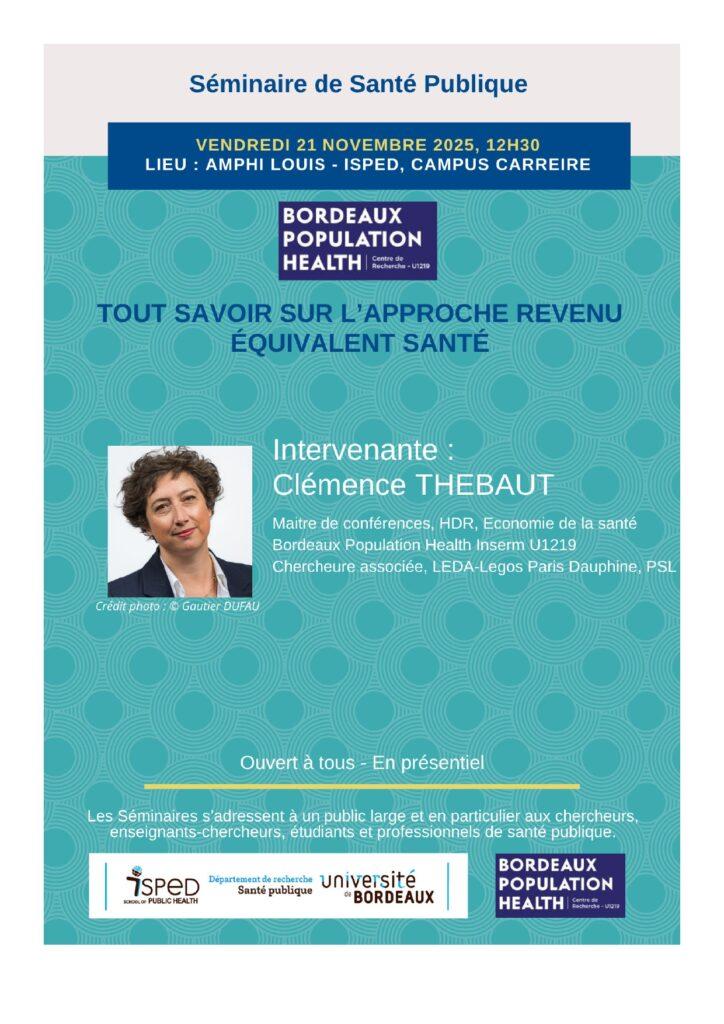Public health seminar: “Everything you need to know about the health equivalent income approach”
RetourThis Friday, 21 November, during a public health seminar entitled “Everything you need to know about the health equivalent income approach”, Clémence Thébaut, professor of health economics at ISPED and BPH researcher, will present her work on the intersection of economics and philosophy concerning the use of economic evaluation methods in health

Clémence Thébaut has been a professor of health economics at ISPED and a researcher with the PHARes-BPH team since the start of the 2025 academic year.
In her research, she explores different methods of economic evaluation in health, particularly for:
- The development of evaluation tools based on principles of redistributive justice. Taking into account the theoretical prerequisites of the various theories of justice considered and the constraints in terms of data production.
- Facilitating discussions between the various actors involved in health economics evaluation by redefining the epistemological and axiological assumptions on which these methods are based.
Taking part in institutional discussions on methodological standards and the place of economic calculation in public decision-making.
The Health Equivalent Income approach
Internationally, several methods are currently being discussed for integrating principles of redistributive justice into economic health evaluation. One of these is particularly appropriate for situations where redistributive issues are significant: very expensive treatments, the decisive role of social factors in the onset or detection of a disease, or the potential impact of the disease on the professional careers and therefore on the incomes of those affected.
This approach consists of evaluating interventions with a view to equalising fundamental social achievements (Fleurbaey, 1995), using an original well-being index: Health Equivalent Income (Fleurbaey, 2007).
These dimensions are currently only partially taken into account by standard methods such as cost/QALY.
To make this new approach operational, several research projects have been launched:
- Surveys to estimate individual trade-offs in terms of health and income
- Developing modelling tools adapted to the theoretical prerequisites of the approach
It is in this context, and to explore these concepts in greater depth, that Clémence Thiébaut will lead the public health seminar entitled “Everything you need to know about the Health Equivalent Income approach”.
Ouvert à tous, en présentiel
21 novembre 2025 de 12h30 à 13h30
📍 Amphi Louis – ISPED – Campus Carreire , université de Bordeaux, 146 Rue Léo Saignat, 33000 Bordeaux


